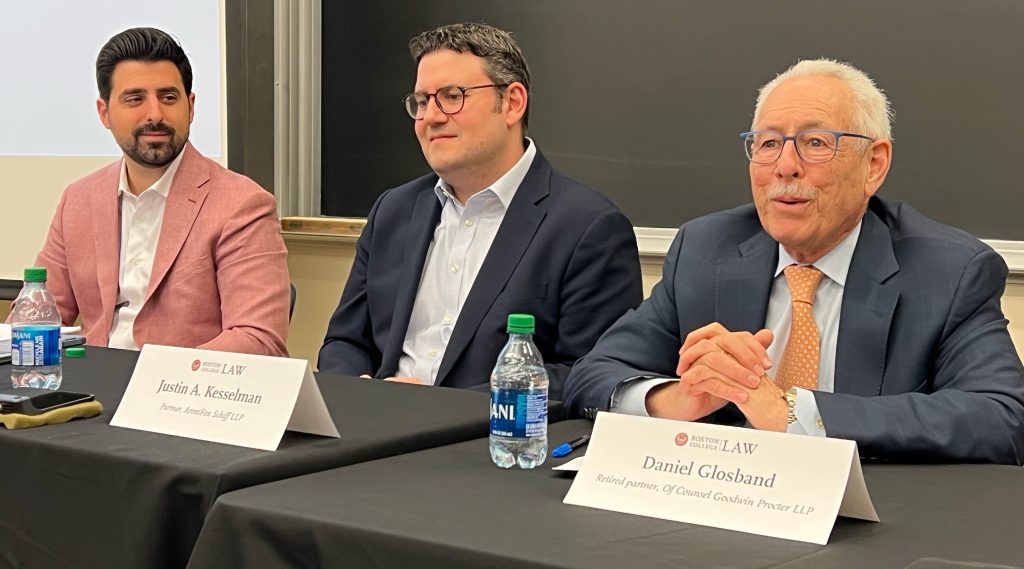In recent years, there seems to be no shortage of global storms for companies to weather: COVID-19, climate change, financial crises, and geopolitical flare-ups. Every challenge, difficult as it may seem, presents an opportunity for businesses to adapt and emerge all the wiser for it. Lawyers can often be found at the forefront of these situations, learning in real-time, assessing risks, and offering due diligence and grounded advice.
On April 21, BC Law’s LLM program partnered with Cleary Gottlieb Steen & Hamilton for a two-panel conference of transactional practitioners to discuss their personal lessons learned in the course of global crises.
Associate Dean for Faculty Katharine Young opened the event, highlighting the role that in-house lawyers and general counsels play: “Lawyers are problem solvers. They are people with comparative and international awareness, trained with historical understanding.” According to Dean Young, the ability to analogize to the past, such as looking back to the Great Depression to understand the economic implication of COVID-19, is a key tool in the lawyer’s kit.
LLM students Georgia Tsignopoulos and Alex Bado, who organized the conference, welcomed and introduced the participants.
The first panel, which focused on multinational transactions, featured Daniel Glosband, of counsel at Goodwin; Justin Kesselman, partner at ArentFox Schiff; and John Papaspanos, partner at Baker Botts. The second, discussing dispute resolution, featured Kabir Duggal, senior international arbitration advisor at Arnold & Porter; BC Law Professor Frank Garcia; Katie Gonzalez, associate at Cleary Gottlieb Steen & Hamilton; and Camille Martini ’16, a PhD Candidate at Laval University in Quebec whose work focuses on global efforts to mitigate climate change.
The panelists drew upon their vast experience in all facets of business law, sharing anecdotes and war stories culled from decades of work in the trenches. Glosband even drafted Chapter 15 of the Bankruptcy Code—the US cross-border bankruptcy law—and helped to draft the United Nations’ Model Law on Cross-Border Insolvency.
Kesselman admitted he was surprised by how much he engages with international stakeholders when working on transactional matters: “I would say, over the last three years, every Chapter 11 case that I’ve had has had an international component to it. We constantly work with international stakeholders and that poses a unique set of challenges. It keeps the area vibrant for me…it’s definitely an interesting field to be a part of.”
The BC Law LLM program welcomed its first class in 2007. Students tailor their courses to their interests and specialize by taking a concentration in one of five areas: human rights and international law, business law, environmental law, intellectual property law, and tax. The training positions them to have a significant impact on global law development and application.


